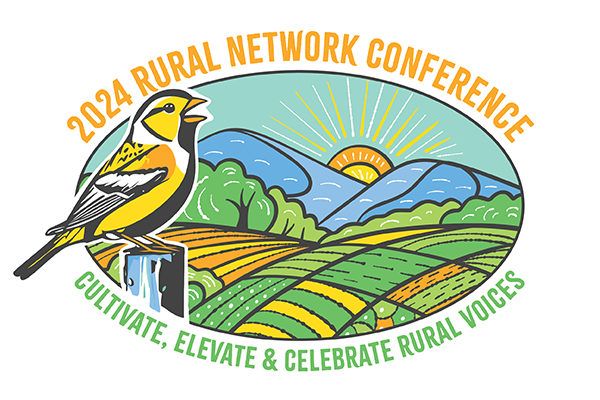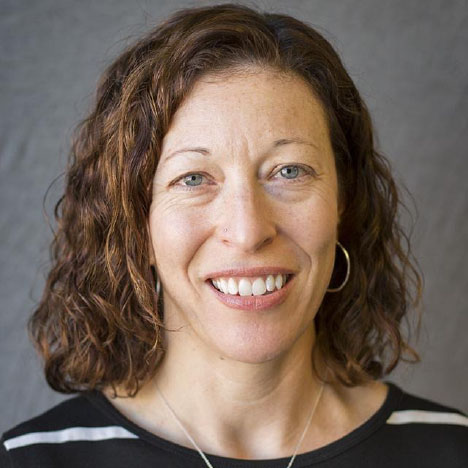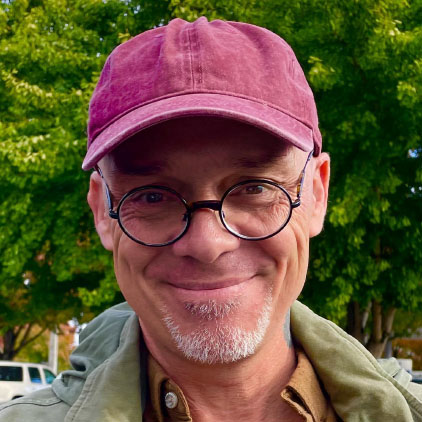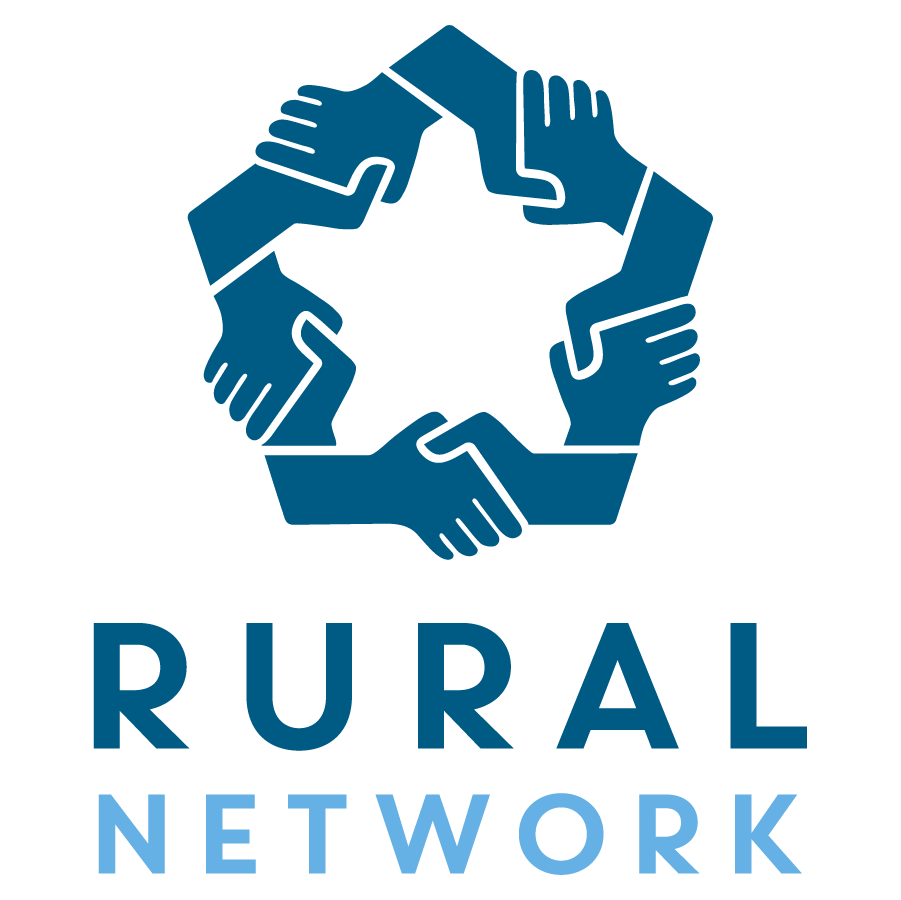Cultivate, Elevate & Celebrate Rural Voices
Rural Prevention ConferenceSeptember 25-26, 2024
This event has concluded.
Information about the next
conference will be available in 2025.

Overview
The Rural Network, a group of prevention specialists, volunteers and leaders across Washington state who work towards building resiliency and preventing youth substance misuse in rural communities, are hosting their second bi-annual Rural Prevention Conference September 25-26 at the Yakima Convention Center.
We welcome anyone currently working in prevention in your rural communities. We are excited about the two days of speakers, sharing ideas, networking, and energizing together. We all live and work in rural communities. Let’s come together to share ideas for successful programs and goals for a better future those communities.
Save the Date
Wednesday, September 25, 2024 from 10am – 4pm
(Networking and registration opens at 8:30am)
Thursday, September 26, 2024 from 8:30 am – 3 pm
Location
Yakima Convention Center
10 N 8th St, Yakima, WA 98901
Objectives
By the end of this two day event, participants will have:
- Connected with prevention peers across rural Washington
- Strategized around rural network action plan and advancing prevention efforts in rural Washington
- Learned latest science, data analysis, and equity initiatives in the substance misuse prevention field
Conference Materials
You can find the various presentations from the conference below:
Commercial Tobacco Policy Change to Reduce Nicotine Use: Engaging Rural Communities
Washington Breathes
Using Ripple Effects Mapping to Increase Community Inclusion
Scott Waller, M.Ed.
Bad People and Good Ol’ Boys: The Criminalization of Rural Disadvantage
Jennifer Sherman, PhD, Washington State University
Eliminating the Sale of Flavored Tobacco Products
Andrew Estep
Washington State Campaign Director, Flavors Hook Kids Washington
Improving Senior Healthcare Access in Rural Environments
S. Joyce Heck, MSN, RN, DNP Candidate
Daniel Hannawalt-Morales, MPH
Beyond Fear: Practical tools for better prevention
Isaac Wulff
Rurally connected, Digitally protected
Center for Online Safety
Learning As We Grow: Mentoring Youth in a Rural Community
Minette Smith, Terrie Howell & Diana Zimmerman
The Culture of Prevention: Keeping the work going by leaning into rural values
Isaac Wulff
Agenda
Wednesday, September 25
- 9:00 a.m. – Registration & coffee/beverages (breakfast on your own, meal not included)
- 10:00 a.m. – Welcome
- 10:30 a.m. – Keynote: Joe Neigel – Advancing Community Prevention Efforts in an Era of Scientific Distrust
- 11:20 a.m. – Break
- 11:40 a.m. – Breakouts
- Isaac Wulf – Beyond Fear: Practical tools for better prevention
- Carlos Meija – Community Lead Innovative and Evidence Base-Interventions for Substance Use Prevention in Rural Areas for Low Income and BIPOC Middle and High School Students
- Issues in Rural Prevention 1 – Facilitated Discussion
- Issues in Rural Prevention 2 – Facilitated Discussion
- 12:30 p.m. – Lunch (with protein)
- 1:30 p.m.– Breakouts
- Sarah Meyers, BA, CPP – Lifecycle of a Rural Coalition: Lessons Learned, and the Interesting New Science of Persuasion
- Lisa Honold – Rurally Connected, Digitally Protected: Fostering OnlineSafety and Digital Wellbeing in Your Community
- Issues in Rural Prevention 1 – Facilitated Discussion
- Issues in Rural Prevention 2 – Facilitated Discussion
- 2:20 p.m.– Break
- 2:40 p.m. – Keynote: Jennifer Sherman, Ph.D. – Bad People and Good Ol’ Boys: The Criminalization of Rural Disadvantage
- 3:30 – 3:45 p.m. – Closing
Thursday, September 26
- 8:00 a.m. – Continental Breakfast
- 9:00 a.m. – Welcome: Day 2 Opening Remarks
- 9:10 a.m. – Keynote: Nigel Wrangham, CADC, CPS – Place at the Table: Meeting the Needs of Rural Youth in Prevention
- 10:00 a.m. – Break
- 10:20 a.m. – Networking Acitivity
- 11:20 a.m. – Lunch
- 12:30 p.m. – Breakouts
- Minette Smith, Terrie Howell, Diana Zimmerman – Learning As We Go: Mentoring Youth in a Rural Community
- Washington Breathes Coalition Members – Commercial Tobacco Policy Change to Reduce Nicotine Use: Engaging Rural Communities
- Joyce Heck, Daniel Hannawalt-Morales – CHOICE ACH: Improving Senior Healthcare Access in Rural Environments
- Issues in Rural Prevention 3 – Facilitated Discussion
- 1:20 p.m. – Break
- 1:40 p.m. – Keynote: Isaac Wulf – The Culture of Prevention: Keeping the Work Going by Leaning into Rural Values
- 2:30 p.m. – Closing
Sessions
Session Approach:
Session details and information will be updated closer to the event. We aim to accommodate 300 participants through a combination of interactive presentations, keynote style information sharing and 3-4 breakout session periods that occur simultaneously to accommodate the number of attendees. Participants can pick and choose which topics are most relevant and interesting to them. Select sessions will be repeated.
Core Topics:
- What is Prevention? Who Is Involved?
- What is the Strategic Prevention Framework and why use it to create community change?
- Outreach and Engagement for Rural Communities: Identifying Rural Challenges and Opportunities (Cultural Competence)
- Outreach and Engagement: Unique Challenges and Opportunities for Rural Communities
- Substance Use in Rural Washington
- Finding and Engaging Youth, Parents, and Communities in Rural Counties and Communities
- Rural Sustainability: Key Concepts and Approaches
- Building Sustainability Early On
- Coalition Care: Avoiding Burnout, Building Volunteer Retention
Keynotes:
Bad People and Good Ol’ Boys: The Criminalization of Rural Disadvantage
If you live in a rural area and are accused of committing a crime, your social standing plays a huge role in your ability to recover. Drawing on research from Central and Eastern Washington, this talk explores how social dynamics in rural communities can play outsized roles in how a person is treated after an entanglement with the law.
Particularly in small towns, where word can travel fast of an arrest, judgement and stigma can undermine social relations and create barriers to securing work and housing. Yet those same dynamics can also give some people a pass— good local reputations can make it easier for some to regain their standing in the community. Join professor Jennifer Sherman as she asks questions including: Why do we define criminality in the ways we do? And are there more effective ways to keep our communities safe and support vulnerable people?
The Culture of Prevention: Keeping the work going by leaning into rural values
Using stories, analogies, and action steps, we will talk about how prevention is viewed through rural eyes, and why it may be difficult to sustain. First, we’ll explore rural realities and attempt to move past a deficit mindset towards strengths-based approaches of communicating prevention principles. Then we’ll discuss some examples of rural values and how framing prevention work using the values of your community can change minds and build long-term systems of health.
Speakers

Isaac Wulff
Growing up a loner in a small town, Isaac spent much of his childhood trying to “crack the code” of rural life and how to fit in. He found much of his safety and protection in school activities like theater and debate. After marrying his wife Katrina after high school, he started a family and worked as a framer. This led to general contracting and home building, which he did for 15 years. Blue collar work helped him gain a better understanding of rural issues. Then in 2011 his grandson Aaron was born. He then decided he wanted to make a difference in kids’ lives, so he went back to school to become a teacher. Teaching led to student support, which led to public health and prevention. He now works for HCA/DBHR and supports prevention grants and programs for Washington. Isaac is curious, open-minded, and has a passion for equity. He believes all young people deserve to grow up healthy and safe. He is proud to serve on the steering committee of the Rural Network.

Joe Neigel, Director of Prevention Services, Monroe School District
Joe Neigel is the Director of Prevention Services for Monroe School District, and he coordinates the Monroe Community Coalition as part of Washington’s Community Prevention and Wellness Initiative. His work is heavily focused on multi-tiered prevention, trauma-informed practice and school-based behavioral health integration. Joe’s print and video community guide, “Prevention Tools: What Works, What Doesn’t,” is distributed statewide and nationally by the Washington State Health Care Authority. Most importantly, Joe is a daddy to five quirky, sweet and hilarious children aged 12-25.

Jennifer Sherman, Professor of Sociology, Washington State University
Jennifer Sherman (she/her) is Professor of Sociology at Washington State University and President of the Rural Sociological Society (2023-2024). She received her Ph.D. in Sociology from the University of California, Berkeley in 2006. Her research looks at the ways in which job loss, poverty, and inequality affect individuals and families, particularly in rural communities in the Northwestern U.S. She is author of the 2009 book, Those Who Work, Those Who Don’t: Poverty, Morality, and Family in Rural America, and the 2021 bookDividing Paradise: Rural Inequality and the Diminishing American Dream, which won the Rural Sociological Society’s Frederick H. Buttel Outstanding Scholarly Achievement Award for a Book in 2023. She also co-edited the 2017 volume, Rural Poverty in the United States, which won the Buttel Award for a Book in 2018. She has authored articles on topics including rural poverty and survival; rural education; surveillance of low-income parents; relationship issues and violence in poor families; farmers’ decision-making processes; and inequality and the impacts of gentrification in high-amenity rural communities. Her current grant-funded research examines the drivers and impacts of rural jail incarceration in Washington State.

Nigel Wrangham, Certified Alcohol and Drug Counselor Level II (CADC) & Certified Prevention Specialist (CPS)
Nigel Wrangham has been a Certified Alcohol and Drug Counselor since 2000. He’s been a preschool teacher, counselor for federal prisoners on parole, parenting coach for families experiencing poverty and homelessness, and a freelance illustrator. When he worked in Uganda studying wild chimpanzees, he taught forest conservation to young people in local villages. From 2003 through 2017, Nigel taught prevention science, psychopharmacology, and media studies at the University of Oregon.
He has served as the National Youth Coordinator for Mothers Against Drunk Driving (MADD), and is a certified Master Level Trainer for CADCA, where he develops curriculum and mentors young trainers in prevention and public health. His passion is supporting young people to build the equitable, just, and healthy society they deserve. He works with groups across the United States, sharing skills in prevention, social justice, brain development, and youth leadership.
Nigel also spends time at home in Eugene, Oregon with his wife, his two extremely disobedient cats, and his two young children. When he gets the chance, he listens to old punk rock music way louder than he probably should. But he hardly ever gets the chance.
Lodging
Note: We connected with Health Care Authority and travel for this event should be approved by CPWI Systems Managers in most cases.
The following hotel has offered us complementary room blocks. Each are holding around 50 rooms for conference attendees, promising us government rate of $111 + tax/fees per night.
The Red Lion Yakima Center
607 E Yakima Ave, Yakima, WA 98901
Guests should register through the link below to automatically apply the group rate to your reservation. If you need assistance, call 1-509-248-5900. It is important that when calling to reference the Rural Conference by ESD 112 group name to ensure they receive the group rate.
If needed, you can reference Christopher Belisle and the sales manager at the hotel, Mandy LeVasseur.
Clock Hour Claim Information for Attendees
Follow the instructions below to claim clock hours after you have attended this event.
- Log in to pdEnroller (create account if needed) pdenroller.org
- Go to the Clock Hours Dropdown Menu and click the link to “Claim Clock Hours” or go to: www.pdenroller.org/clockhours
- Enter Clock Hour Claim Code: SFY-TA2
(Claim code for this event only. Subsequent events require a new claim code.) - Claim number of hours attended and affirm
- Take survey and pay, if applicable
- Clock hours will be confirmed within 30 days
Our Sponsors
We couldn’t do this without our sponsors! A special thanks to Rede Group & the Rural Network, Educational Service District 112, and the Washington State Department of Health Youth Cannabis and Commercial Tobacco Prevention Program.



